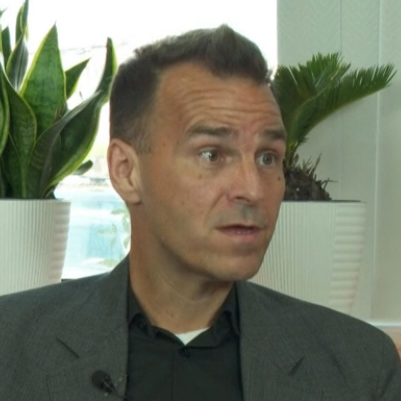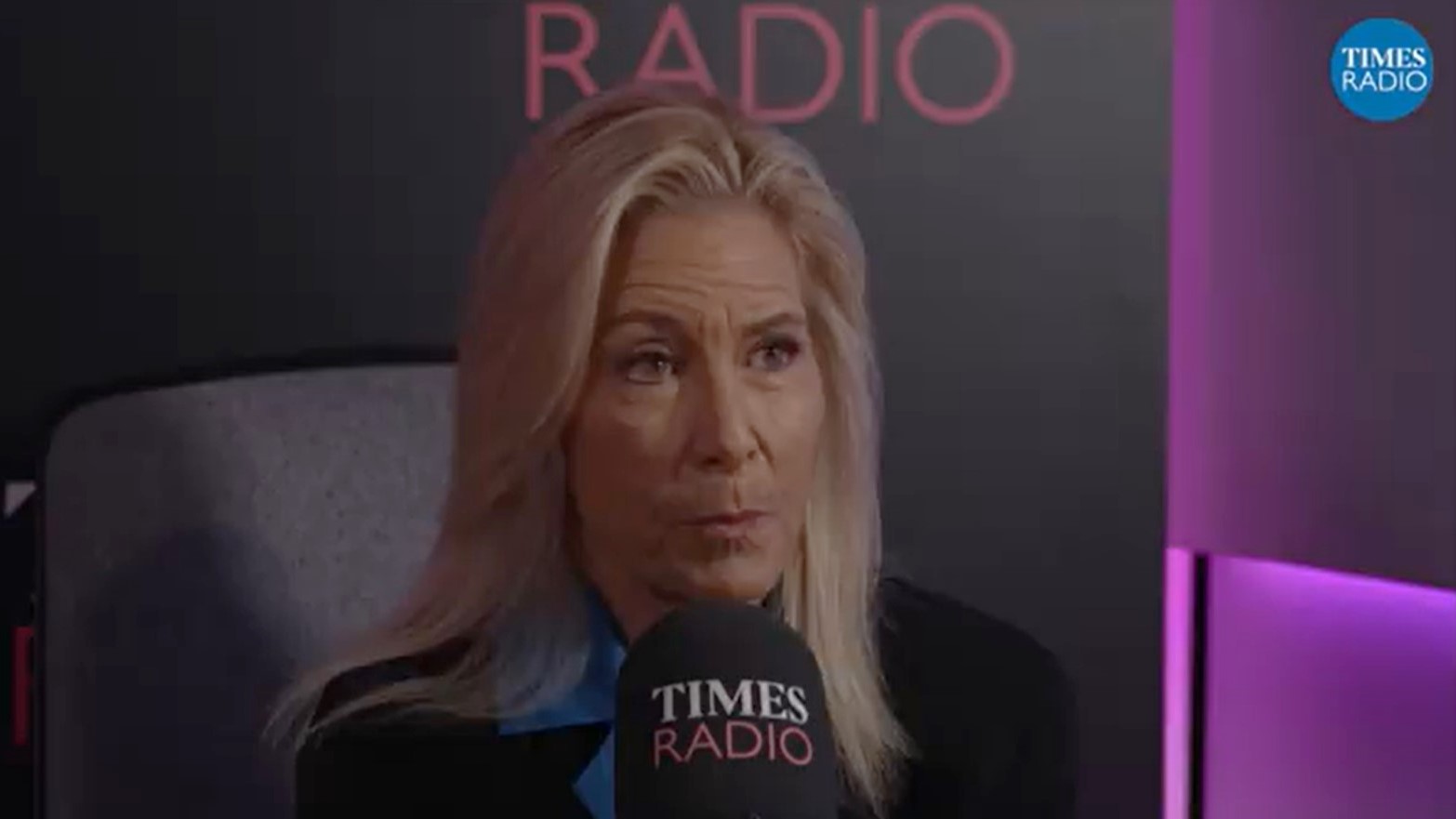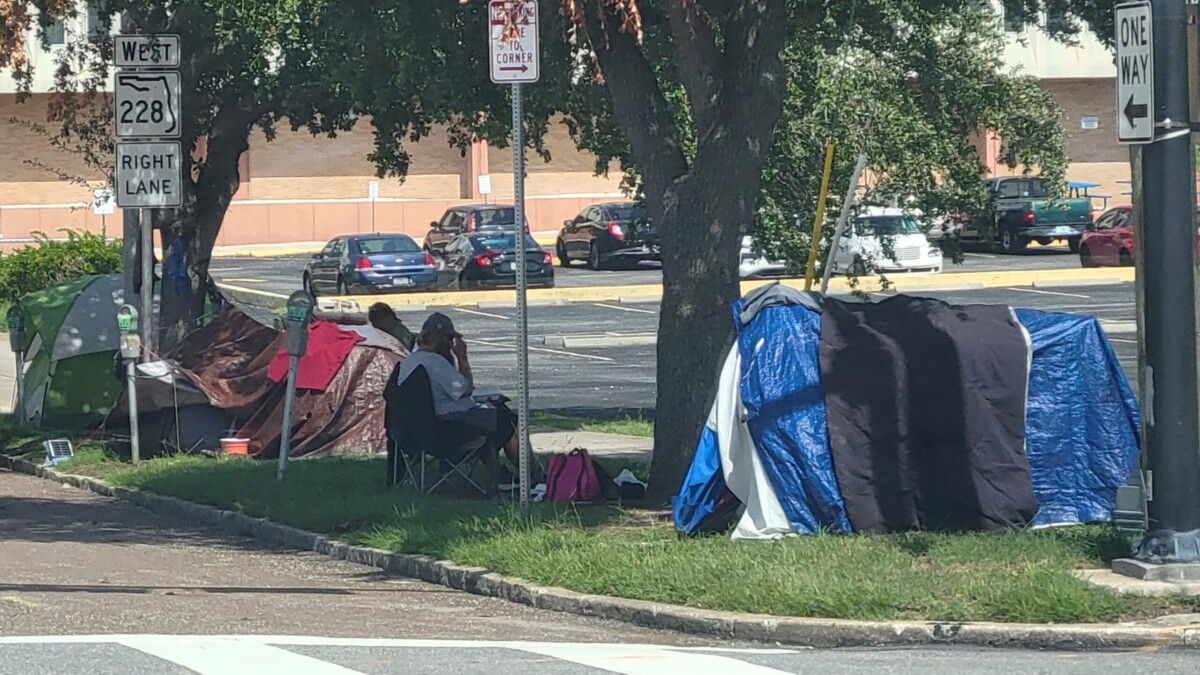
As a member of a family whose name wasn’t exempted from the death rolls of the most famous concentration camps in history, I was struck by the mayor’s comments in London about Donald Trump and “concentration camps” she says he would install if he’s elected president.
You’ve likely seen them by now, but to sum up, she said Trump would implement them for undocumented immigrants, putting “people in what would really amount to a concentration camp-type situation to round them out of the country.”
She went on to double down, twice. She told the Times Radio interviewer that Trump sought a “concentration of people that are in a camp” and then told Action News Jax’s Ben Becker that when “you flat out call a group of human beings animals and say they are poisoning the blood of our country, then promise to round them up in detention camps, what would lead anyone to believe that they would be treated humanely.” She acknowledged the “pain” the words may have caused and tripled down before last week’s end.
Her allies have extended the Clintonesque “It depends on what the word concentration camp is,” suggesting that what the mayor REALLY meant was Japanese internment camps under FDR. Those who believe that tend to be sympathetic to the mayor. And as the saying goes, if you’re explaining, you’re losing.
To be clear: Trump, famous for the “build the wall” theme of the 2016 election, amid claims that other countries aren’t “sending their best,” definitely used the “poisoning the blood” phrase on the campaign trail just this year.
But timing is everything.
And the mayor’s decision to play fast and loose with exceedingly controversial tropes to boost a presidential candidate, while on a taxpayer-funded junket overseas where she celebrated the NFL’s approving those same taxpayers’ spending close to a billion dollars to stadium renovations, raises serious questions about the administration’s priorities and understanding of optics.
When taking a victory lap over the owners’ unanimous approval of the franchise-stabilizing, publicly funded generational investment on behalf of a 1-5 team that has won under five games a year on average during Khan’s tenure, Deegan was riding a wave of glow-up coverage from a sports media with an entirely symbiotic relationship with the local NFL team, reliant on the Jaguars’ profile for relevance and to protect them from their previous fates of having to document SEC football and Bobby Bowden’s homespun witticisms.
She was described as “giddy” by one scribe, amid breathless coverage of the vote that even a blind man would have seen as clearly as a 50-foot-tall neon sign that allowed her personal vindication and the ability to, once and for all, marginalize the naysayers who worried about return on investment and socialized finance schemes for private profit.
How giddy she was after using precious time on a major broadcast in one of the most important cities in the world to wade into presidential politics rather than avoid that and just tout Jacksonville as a great place to do business is an open question though.
Senior members of the most recent two mayoral administrations reached out independently with grave concerns on an off-record basis, but here’s the gist.
Those in Alvin Brown’s orbit say that Deegan’s gaffe illustrates why the former mayor didn’t wade into partisan politics. Indeed, the last Democratic mayor messaged to a fault to Republicans, Democrats, and Independents up until the last few weeks of his campaign against Lenny Curry, maintaining a working relationship with then-Gov. Rick Scott during most of his term and even courting the First Coast Tea Party in his re-election.
Alvin Brown wasn’t perfect. But he wouldn’t have gone on a radio show to be heard globally and talked breezily about concentration camps.
And those from the Curry administration wonder who is minding the store in the St. James Building, and why the comms team didn’t at least do timely cleanup rather than putting the mayor’s gaffe in bold face in initial comments, then a second attempt at cleanup Friday. Those alums think it’s a failure of advisors in crafting a message that doesn’t privilege political rhetoric over policy, and a collapse of crisis management not to realize the mistake that was made.
Numerous Jacksonville and Tallahassee Republicans have weighed in publicly, offering swift condemnations of a mayor who — recall — isn’t on American soil to respond timely.
Whatever one might think about Trump’s immigration policy (even though polling by and large shows voters trust him over Harris to handle the border crisis), the Mayor’s comments were poorly timed and gave political ammunition to her enemies, for no apparent gain beyond making news out of what otherwise was an ephemeral and forgettable interview.
The ultimate irony is that this administration, like no other, is steeped with local news experience. In addition to the Mayor herself, a fixture on Jacksonville television for decades, numerous senior staffers also come from radio and TV and are acutely aware of what happens when a quote goes wrong.
It’s hard to imagine one going more wrong than this one, which is arguably the true beginning of the 2027 mayoral campaign for folks like T.K. Waters, Ron Salem, and Rory Diamond, all of whom excoriated Deegan.
During her inaugural speech, the mayor quoted Pierre Teilhard de Chardin aspirationally: “The day will come when, after harnessing the ether, the winds, the tides, gravitation, we shall harness for God the energies of love. And, on that day, for the second time in the history of the world, man will have discovered fire.”
That’s half right.
The fire is here now. But the energy comes from confusion and disconsolation for some who expected far better than partisan pandering from a candidate who ran on unity and not parlous polemic while representing the whole city abroad in an official capacity, and political opportunity for the same machine Deegan thought she dismantled when she won election last May.
Speaking of that machine, she can expect it to produce a City Council resolution condemning her remarks soon.







